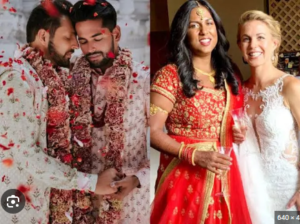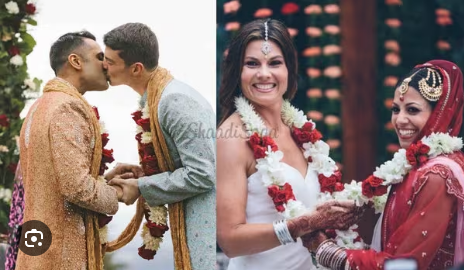The Supreme Court is set to announce its decision on a series of petitions advocating for the legal recognition of same-sex marriages on Tuesday (Oct 17). A panel of five judges from the highest court had reserved its judgement on this matter after extensive hearings in May of the same year.

This case reached the Supreme Court's doorstep last year, with 18 same-sex couples filing petitions seeking the acknowledgement of same-sex marriages under the Special Marriage Act, the Foreign Marriage Act, and the Hindu Marriage Act.
On November 25, 2022, two same-sex couples approached the Supreme Court, urging the recognition of same-sex marriages under the Special Marriage Act. They argued for the Act to be made gender-neutral, and the Supreme Court issued notices to the Centre and the Attorney General of India in response.
On December 14, 2022, the Supreme Court also issued notices for another plea filed by a same-sex couple. This married couple, composed of an Indian and a US citizen, sought legal recognition of their marriage under the Foreign Marriage Act.
The Supreme Court consolidated all related cases from different high courts and set a hearing date for March 13, 2023, instructing the government to respond by February 15. Furthermore, the court appointed a nodal counsel to assist both sides in the legal process.
In March 2023, the Centre filed an affidavit opposing same-sex marriage, arguing that the traditional concept of an Indian family involves a union between a biological man and woman, deeply rooted in religious and societal norms.
On March 13, 2023, the Supreme Court referred the case to a constitutional bench, emphasising the relationship between statutory regulations and constitutional rights. The petitioners asserted broader constitutional entitlements based on the right to life, personal liberty, and dignity under Articles 14, 19, and 21, reported ANI.
In April 2023, religious and child rights bodies presented their perspectives. The Jamiat Ulama-I-Hind opposed the recognition of same-sex marriages, citing Islam's prohibition of homosexuality, while the Delhi Commission for Protection of Child Rights supported same-sex marriages and the right of same-sex couples to adoption.

